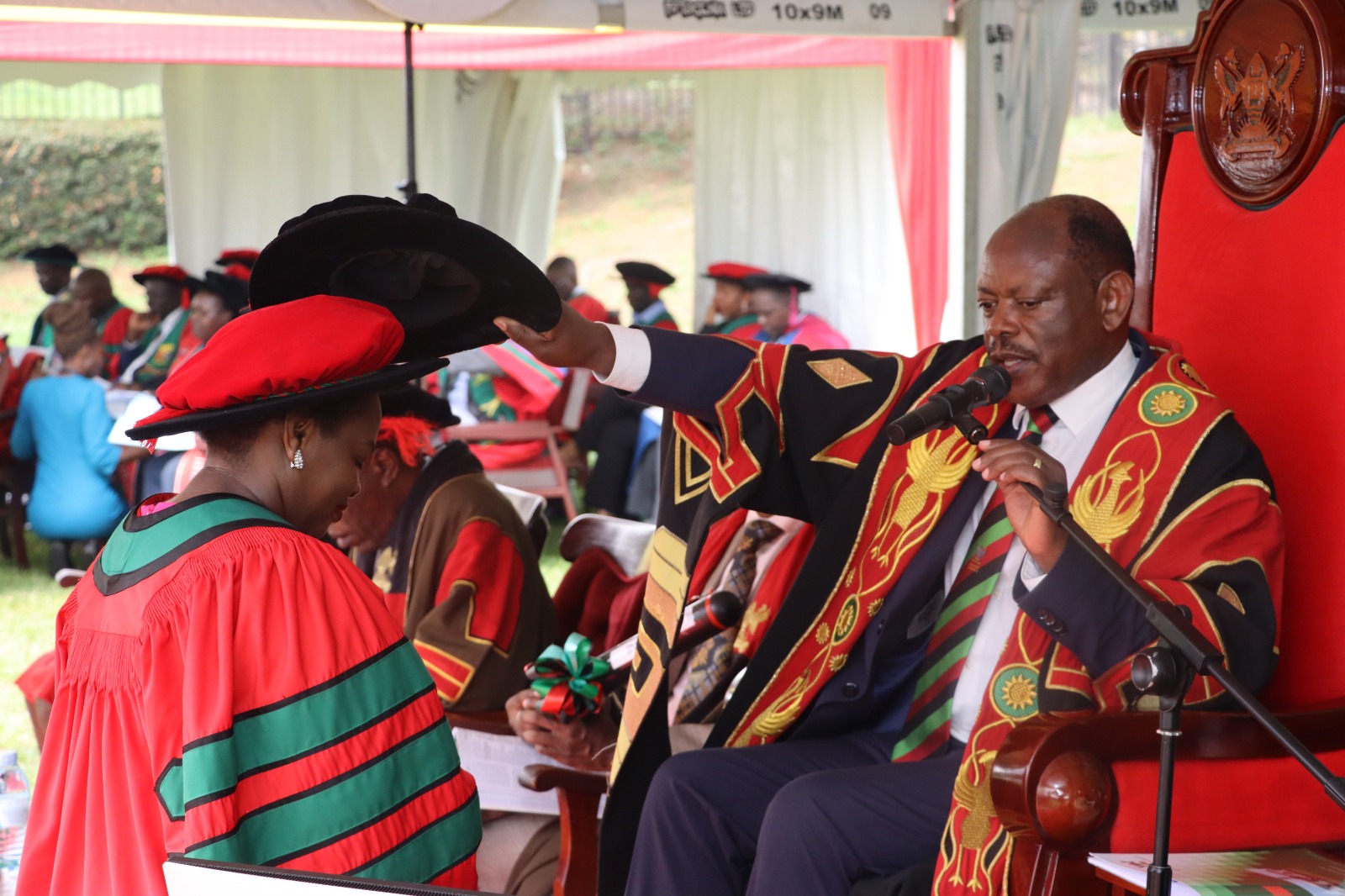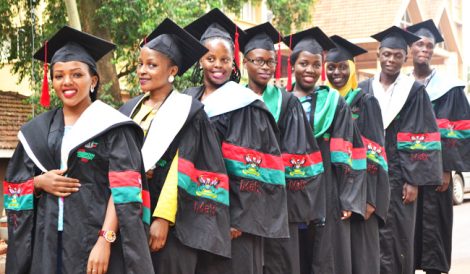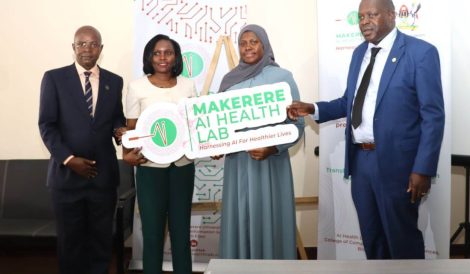661 graduands from the College of Computing and Information Sciences (CoCIS) were on 31st January awarded degrees and diplomas in the different disciplines during the 3rd session of Mak 74th Graduation ceremony.
Of that total, 626 graduates walked away with undergraduate (Bachelors degrees), 32 with Masters Degrees, 2 with PhDs while 1 got a Post Graduate Diploma.
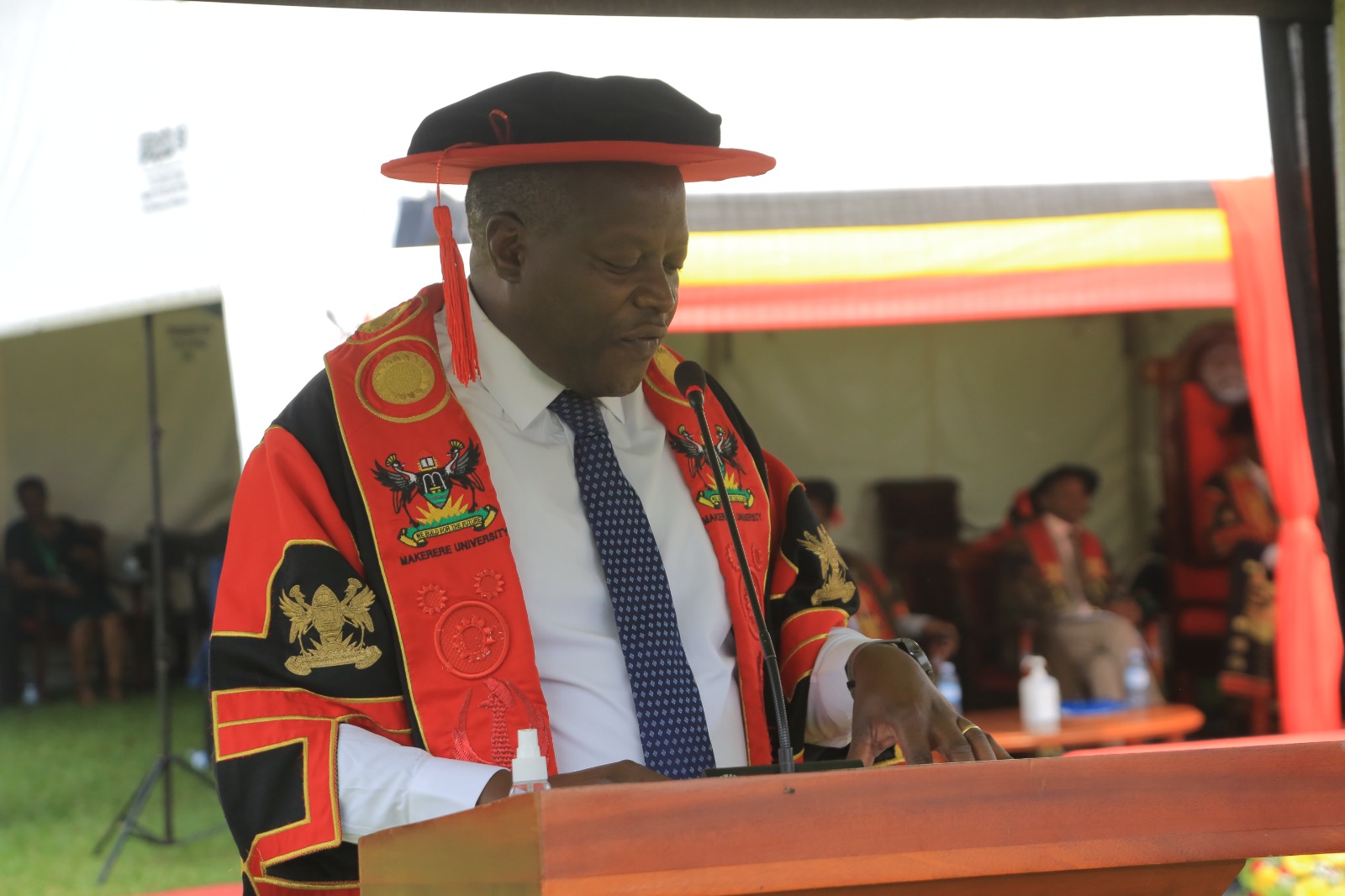
The five-day long graduation ceremony kicked off on the 29th of January 2024 – 2nd February 2024. During the course of the 74th graduation ceremony a total of 12,913 graduands received degrees and diplomas of Makerere University. Of these, a total of 132 graduands graduated with PhDs, 1585 with Masters degrees, 11,016 with Bachelor’s degrees, 156 with postgraduate diplomas, and 24 with undergraduate diplomas.
53% of the graduands were female and 47% were male. In the category of PhD graduands, 46 were female and 86 were male. In the category of students graduating with Master’s degrees, 699 were female and 886 were male.
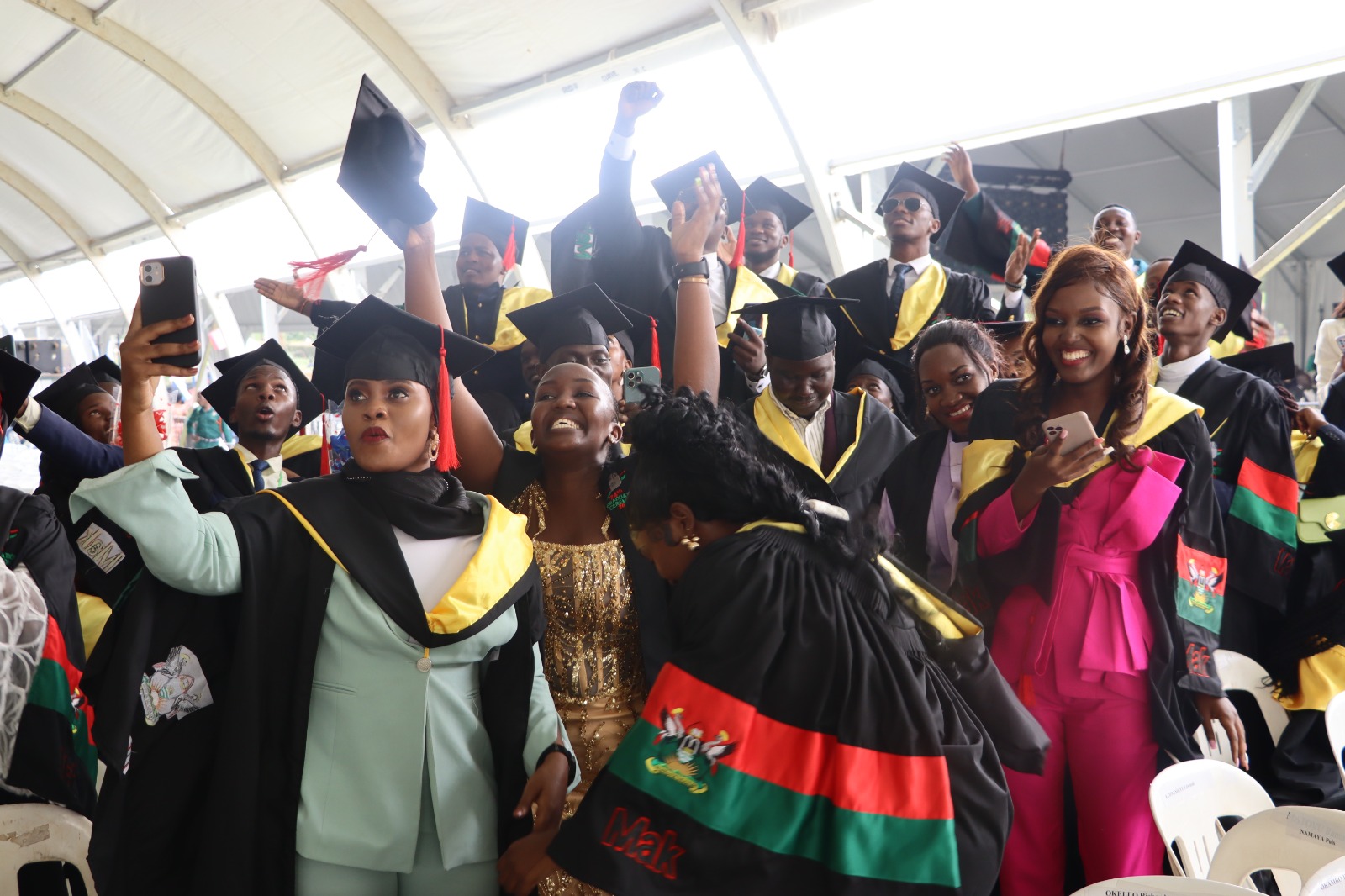
The graduation ceremony was presided over by the Vice Chancellor Makerere University Prof. Barnabas Nawangwe. Nawangwe executed the role of Chancellor as provided for in the Universities and Other Tertiary Institutions Act following the expiry of the tenure of Prof. Ezra Suruma as Chancellor. The University Council commenced the search for his successor that was on-going.
CoCIS Commended for Noble Research in Artificial Intelligence for to Solve Africa’s Problems
Reflecting on the May 2019 UNESCO conference on Artificial Intelligence and education in Beijing, China, the Vice Chancellor asserted the university’s potential and commitment to utilization of AI to make a difference for Africa.
Prof. Nawangwe reported that the University through the College of Computing and Information Sciences in collaboration with the School of Public Health received a grant funding worth US$1,500,000 (5.5bn/=) from Google to support its Ocular project that is undertaking research on usage of Artificial Intelligence to enhance the diagnosis process of Malaria, Tuberculosis and Cervical Cancer in Uganda.
Launched on 13th September 2023, the project team led by Dr. Rose Nakasi benched on the rampant challenges faced by the laboratory experts while undertaking diagnosis procedures. Health centres in Uganda are not only strained with the escalating number of patients seeking for laboratory screening tests – the country has few trained laboratory technicians to support the diagnosis process using the microscope.
The research team according to the Nawangwe took advantage of the existing technologies such as the smartphone and the availability of at least a microscope in every health centre across the country to develop a 3D printable adaptor that was attached to an eye piece of the microscope. The 3D adapter was also slotted in the smartphone to capture images.
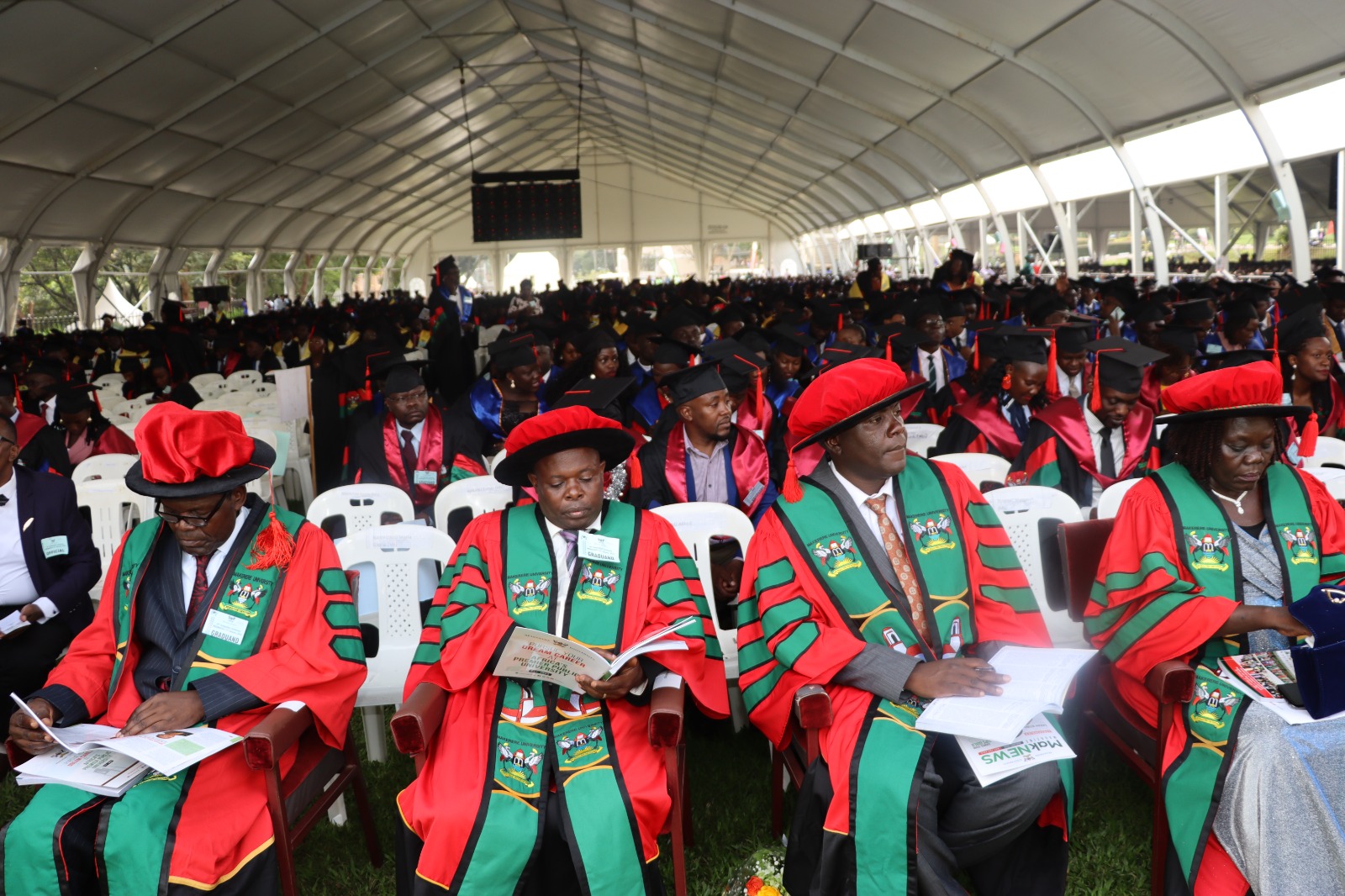
With the capabilities of Artificial intelligence through computer vision, images can be processed and this directs the experts where the pathogens are. This technology shortens the diagnosis process making it more accurate, quicker and easier to diagnose health conditions and potentially reducing screening time by over 80%.
The Vice Chancellor also reported that in addition, researchers led by a second-year PhD student Paddy Junior Asiimwe designed a device to monitor elderly people with dementia and cognitive impairment in rural Uganda. The device, wearable by the elderly will monitor the patients’ movement and location and then signal the caretaker and the hospital in case of emergencies.
The technology funded by Government of Uganda through Mak-RIF was disclosed on 13th October, 2023. It monitors elderly people remotely using GPS technology which defines a safe zone around a user and a PDR system to monitor the position of the user within the safe zone. This technology is cheap, and better than the systems existing on market, and is best recommended for more resource constrained environments. The system operates independent of the user mostly in rural areas who cannot read and write. It does not require electricity and runs on batteries, charged once a week and can run for 30 days.
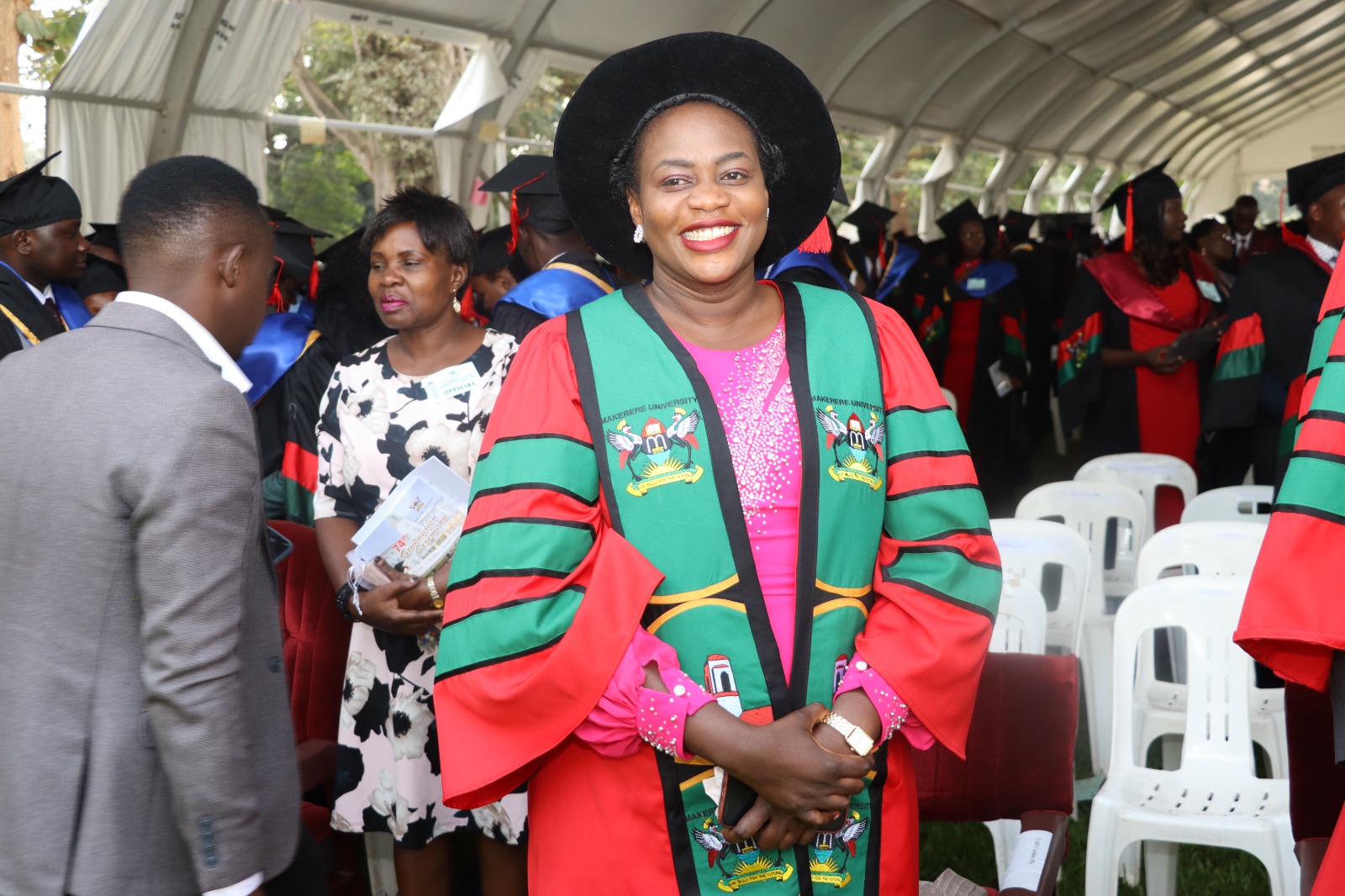
Prof. Nawangwe also highlighted how university researchers lead by Prof. Engineer Bainomugisha has invented devices geared towards monitoring and managing air quality across cities on the continent.
“The AirQo Project, in collaboration with various partners launched the CLEAN-Air Africa Network on 5th April 2023 bringing together communities of practice from over fifteen cities in Africa, with a focus on utilising low-cost sensors for air quality management in Africa.
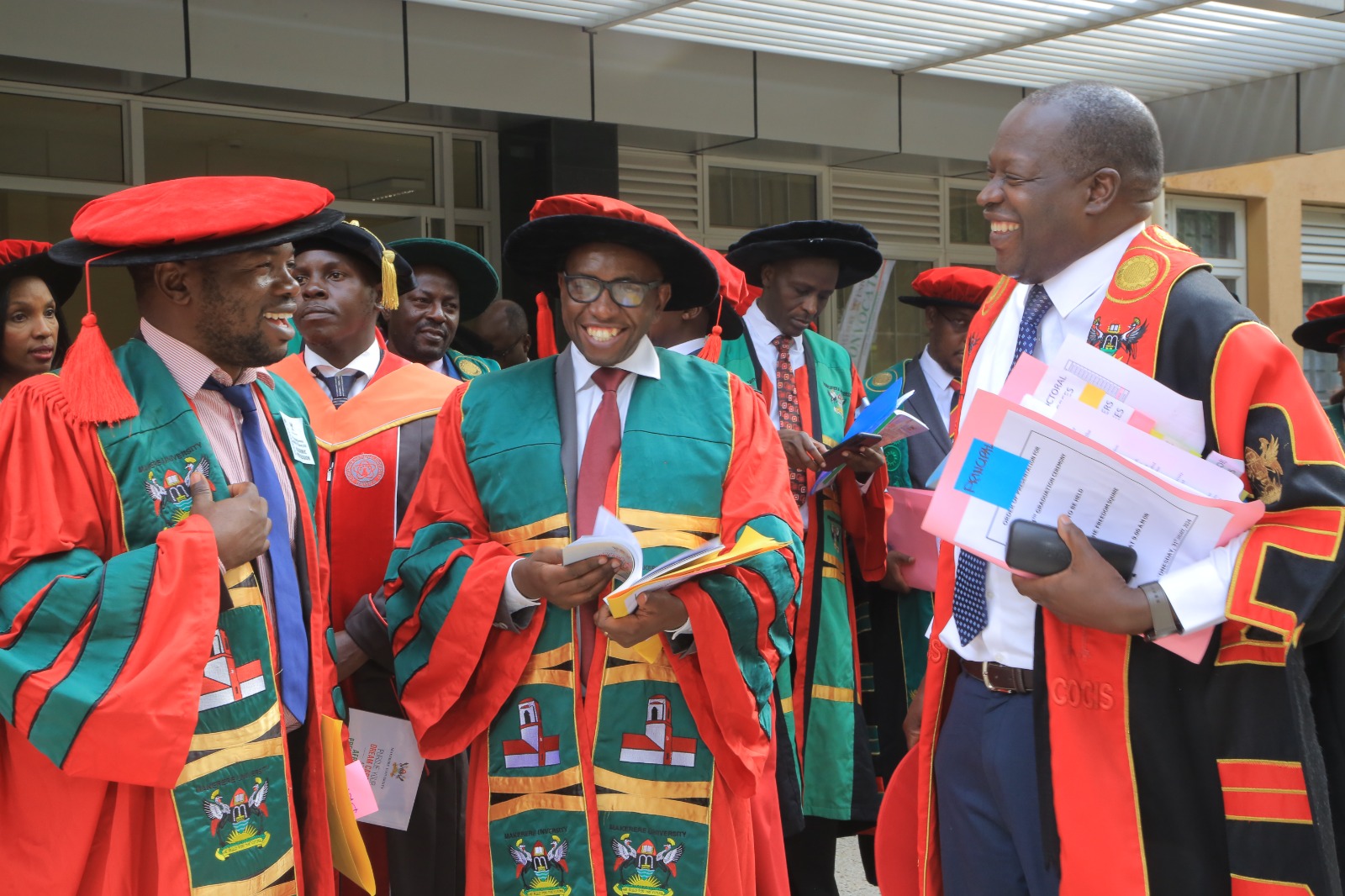
Held under the theme: Championing Liveable Urban Environments through African Networks for Air, the workshop served as a Launchpad for Africa-led collaborations and multi-regional partnerships for sustained interventions to achieve cleaner air across the Continent”, Nawangwe appreciated.
Five get the Vice Chancellor’s Research Excellence Awards 2023
During this third session , the Vice Chancellor recognized the best researchers listed and published in the Graduation Booklet and the Mak News Magazine. The awards were based on Scopus database. The researchers were honored by the Vice Chancellor and Chairperson of Makerere University during the convocation luncheon held at Makerere University Convocation House.
CoCIS best researchers included.
- Prof. Bainomugisha Engineer
- Prof. Nabukenya Josephine
- Nabende Peter
- Professor Baguma Rehema
- Odongo Eyobu Steven
Prof. Nawangwe urged all staff to continue conducting research on national development priorities as well as matters of global interest and publishing their work in high-impact journals so as contribute to our drive to become a research-led university. He also advised on the need for the research to lead to patents, copyrights and trademarks, and tangible innovations in the form of products, policy briefs, manuals and others.
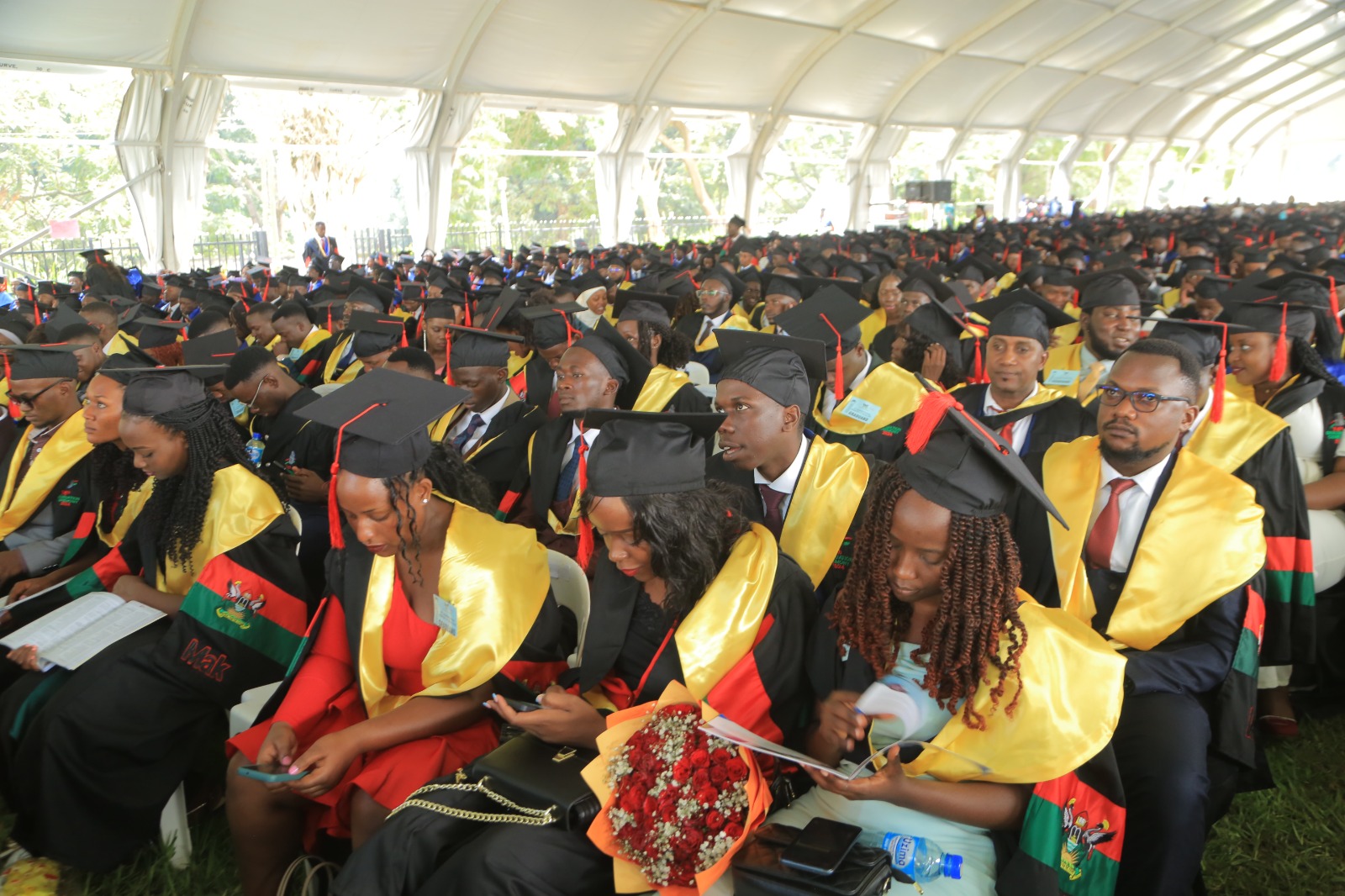
The Vice Chancellor highlighted a number of achievements recorded in the last two years including the timely issuance of the academic transcripts at the time of graduation.
In his key message to the graduands, Prof. Nawangwe described graduation as the most important and most memorable day in the life of any scholar on grounds that it is a licence to succeed in life, and a privilege to serve humanity.
“You have worked hard to get a degree or diploma from one of the best universities in the World. This is a license for you to succeed in whatever you choose to do in your life career. But always remember that success will only come with discipline and hard work, while honoring your parents and fearing God.
Shortly you will become an alumnus of this great institution. Cherish the knowledge and experiences you have collected while here, but remember that learning never ends. Our gates remain open for you if you wish to pursue higher degrees”, The professor advised.
With a degree from one of the best universities in the World, Prof. Nawangwe stressed, that graduates have no reason not to succeed in life.
“Indeed, the World is yours to conquer. If jobs are not forthcoming, create them, for we have empowered you not only to be employable, but also to be entrepreneurs. Be the light that others will follow. We are proud that we have been a part of your life, that we have given you the knowledge and courage to face life in this ever-changing World. Go out to the World and make it a better place”. He emphasized.
Please find these and more in the Vice Chancellors speech attached.
![]() VICE-CHANCELLOR’S-GRADUATION-SPEECH-FOR-31-JANUARY-2024
VICE-CHANCELLOR’S-GRADUATION-SPEECH-FOR-31-JANUARY-2024
By Jane Anyango
Principal Communication Officer, CoCIS

